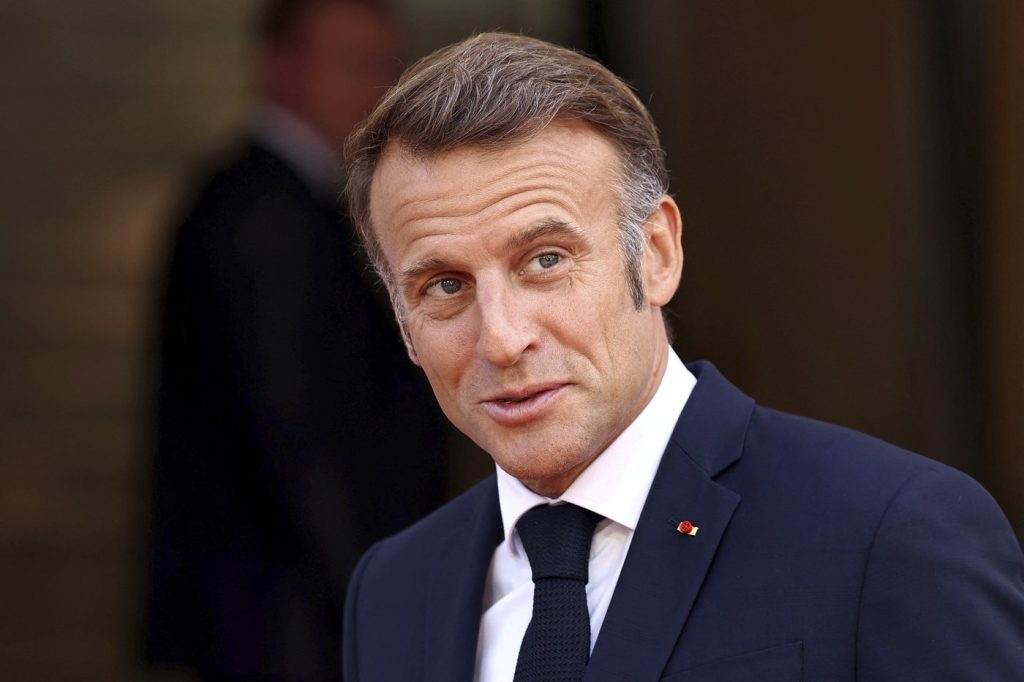PARIS (AP) – French President Emmanuel Macron's recent decision to recognize a Palestinian state has sparked outrage in Israel and among its U.S. ally, as it has shifted focus back to a two-state solution in peace talks amidst the ongoing war in Gaza. In a letter addressed to Israeli Prime Minister Benjamin Netanyahu, Macron emphasized the conviction that a Palestinian state is essential for lasting peace and integral to Israel’s security.
Macron articulated that France's diplomatic stance is driven by deep concern over the humanitarian crisis in Gaza, which he described as "appalling," adding that there could be no justification for the situation. As the conflict escalated following a Hamas-led attack on Israel on October 7, 2023, Israel declared Gaza's largest city a combat zone, with the Health Ministry reporting over 63,000 Palestinian deaths.
France's recognition of Palestine has prompted similar considerations from other Western nations, including the U.K., Canada, Australia, and Malta, who plan to formalize their commitment during the U.N. General Assembly meeting starting on September 23. Other countries such as New Zealand, Finland, and Portugal are also contemplating a similar stance.
Netanyahu opposes Palestinian statehood and has announced intentions to intensify military actions in Gaza. This reaction came after Macron faced criticism from Netanyahu, who accused him of stoking the "antisemitism fire" by supporting Palestinian statehood—a claim that Macron rejected as "abject." In addition, U.S. Ambassador to France Charles Kushner expressed concern that gestures toward recognizing a Palestinian state could encourage extremists and put Jewish lives at risk in France.
Analysts highlighted that this backlash indicates the significance of symbolic gestures in international relations. Pascal Boniface, a geopolitics expert, noted that there is a critical race against time between pursuing diplomatic solutions and the worsening situation on the ground in Gaza, complicating the two-state solution further. Critics expressed disappointment that leaders would delay recognition until September, fearing that conditions in Gaza might deteriorate even further.
International leaders, including Macron, have called for Israel to halt the ongoing offensive in Gaza, where over 2 million residents are now displaced and areas lie in ruins amid a declared famine. Macron warned that military actions such as the occupation and forced displacement of Palestinians would ultimately not secure victory for Israel but rather deepen its isolation and provoke antisemitism globally.
More than 140 countries currently recognize a Palestinian state, although this recognition is largely symbolic. Despite this, Palestinian political analyst Muhammad Shehada pointed out that the recent moves by heavyweight Western nations increase diplomatic pressure on Israel, undermining Netanyahu's narrative that significant population control measures are necessary to resolve the Palestinian issue.
The French Foreign Minister Jean-Noël Barrot remarked that diplomatic efforts led by France and Saudi Arabia have resulted in unprecedented condemnation of Hamas's violence against civilians by the 22 member nations of the Arab League. During a conference co-hosted by France and Saudi Arabia, the Arab League issued a declaration demanding Hamas to relinquish its control over Gaza and surrender its weapons to the Palestinian Authority.
Shehada believes this diplomatic momentum may fortify the moderate Palestinian faction by demonstrating that the Palestinian Authority plays a pivotal role in negotiations. It may also diminish the influence of Hamas's more violent leadership by establishing a diplomatic avenue that promotes peace over violence, signaling that engagements through dialogue could lead to statehood.
The Palestinian Authority seeks to establish an independent state encompassing the West Bank, east Jerusalem, and Gaza, territories occupied by Israel during the 1967 Middle East war. Following Hamas's 2007 takeover of Gaza, the Palestinian Authority has maintained limited control over certain areas of the Israeli-occupied West Bank.











